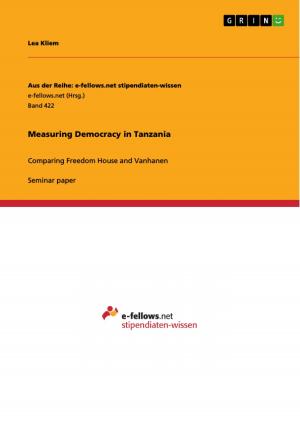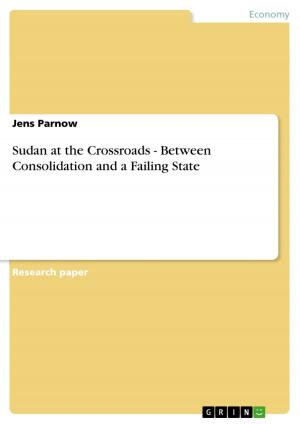| Author: | Ismail Durgut | ISBN: | 9783638055147 |
| Publisher: | GRIN Publishing | Publication: | May 29, 2008 |
| Imprint: | GRIN Publishing | Language: | English |
| Author: | Ismail Durgut |
| ISBN: | 9783638055147 |
| Publisher: | GRIN Publishing |
| Publication: | May 29, 2008 |
| Imprint: | GRIN Publishing |
| Language: | English |
Seminar paper from the year 2007 in the subject English Language and Literature Studies - Linguistics, grade: 2,0, University of Duisburg-Essen, 9 entries in the bibliography, language: English, abstract: New Zealand English is one of the most closely studied national varieties of English outside the USA and UK, and a source of significance for the dialect differentiation and historical evolution of English. Most of the work has been done in the relatively short period of about 15 years compared with the longer time frame of studies in British and American English. One reason for this is that New Zealand English has, from its beginning, benefited from significant co-operative and collaborative activity among New Zealand linguists (see Kuiper, 2003). This paper gives an overview of how this certain variety of the language emerged and changed until today. It also deals with its specific characteristics in comparison with other varieties, especially varieties of the Southern Hemisphere. New Zealand was first discovered by Polynesian explorers and settled by AD 1150. It was rediscovered by Abel Tasman, a Dutch, in 1642, and was given its name by Dutch geographers by the end of that century. Its language contact situation with English took place when Captain James Cook, who claimed it for the British Crown, visited New Zealand with H.M.S Endeavor in 1769 (see Macalister, 2006; Bauer, 1994). From about 1792 onwards European traders, whalers and sealers operated from the coasts of New Zealand. English was probably the lingua franca of this region. Since 1840, when the Treaty of Waitangi was signed between representatives of the British government and a number of Maori chiefs, English attached its importance. More and more Pakeha, as the Maori called settlers of European origin, came in three periods of mass migration between 1840 and 1880. Most settlers were upper working class and lower middle class and largely British (see Bauer, 1994). There were several motives why they left their home-countries to start a new life so far away. An overriding belief was that travelling to this distant country would enable people to better themselves and provide better prospects for their children, without abandoning their British roots. Their aim was the creation of a new Britain in the South Pacific in the context of British law, religion, education, social values and practices (see Gordon and Sudbury, 2002). Another reason was the hope of becoming wealthy. Miners came, mainly from Australia, enforced by the hope to find gold since it had been discovered in 1861 in Otago, South Island.
Seminar paper from the year 2007 in the subject English Language and Literature Studies - Linguistics, grade: 2,0, University of Duisburg-Essen, 9 entries in the bibliography, language: English, abstract: New Zealand English is one of the most closely studied national varieties of English outside the USA and UK, and a source of significance for the dialect differentiation and historical evolution of English. Most of the work has been done in the relatively short period of about 15 years compared with the longer time frame of studies in British and American English. One reason for this is that New Zealand English has, from its beginning, benefited from significant co-operative and collaborative activity among New Zealand linguists (see Kuiper, 2003). This paper gives an overview of how this certain variety of the language emerged and changed until today. It also deals with its specific characteristics in comparison with other varieties, especially varieties of the Southern Hemisphere. New Zealand was first discovered by Polynesian explorers and settled by AD 1150. It was rediscovered by Abel Tasman, a Dutch, in 1642, and was given its name by Dutch geographers by the end of that century. Its language contact situation with English took place when Captain James Cook, who claimed it for the British Crown, visited New Zealand with H.M.S Endeavor in 1769 (see Macalister, 2006; Bauer, 1994). From about 1792 onwards European traders, whalers and sealers operated from the coasts of New Zealand. English was probably the lingua franca of this region. Since 1840, when the Treaty of Waitangi was signed between representatives of the British government and a number of Maori chiefs, English attached its importance. More and more Pakeha, as the Maori called settlers of European origin, came in three periods of mass migration between 1840 and 1880. Most settlers were upper working class and lower middle class and largely British (see Bauer, 1994). There were several motives why they left their home-countries to start a new life so far away. An overriding belief was that travelling to this distant country would enable people to better themselves and provide better prospects for their children, without abandoning their British roots. Their aim was the creation of a new Britain in the South Pacific in the context of British law, religion, education, social values and practices (see Gordon and Sudbury, 2002). Another reason was the hope of becoming wealthy. Miners came, mainly from Australia, enforced by the hope to find gold since it had been discovered in 1861 in Otago, South Island.















